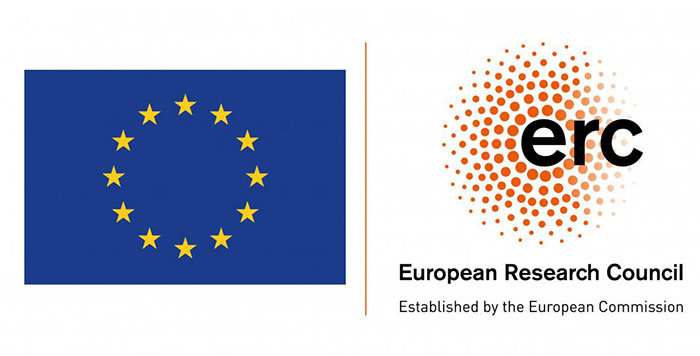Projet de recherche
RevAClaw
Description du projet
Résumé
La corruption transnationale des entreprises représente une activité criminelle en hausse et un sérieux enjeu pour les responsables de l’application de la loi. Depuis 2000, les normes anticorruption se sont multipliées, ce qui a conduit à des procédures pénales plurijuridictionnelles du fait de la refonte du droit pénal matériel, du droit pénal procédural et de l’entraide judiciaire en matière pénale. Dans ce cadre, un modèle hybride de justice pénale des entreprises a fait son apparition, aboutissant à une forme non transparente et exclusive de justice pénale. Le projet RevACLaw, financé par l’UE, aspire à fournir un schéma conceptuel inclusif pour l’étude des stratégies de refonte aboutissant au modèle hybride de justice pénale des entreprises et à évaluer les impacts d’un tel modèle. Le projet se concentrera sur les États‑Unis, la France, la Suisse et le Royaume‑Uni, en employant une méthode interdisciplinaire innovante.
Equipe
Responsable de l’étude et de la recherche
Prof. Dr. Nadja Capus
Faculté de droit
Université de Neuchâtel
Equipe de recherche
- Melody Bozinova, doctorante (2020-2024)
- Dr. Hannah Brodersen, postdoctorante (2020-2022)
- Dr. rer. soc. Franziska Hohl Zürcher, postdoctorante (2023-2025)
- Basilio Nunnari, doctorant (2020-2023)
- Festus Nzeyimana, doctorant (2024-2026)
Publications
2025
Capus, N. (2025). Le tribunal pénal : un élément perturbateur dans le flux fluide du droit transnational de la lutte anticorruption? Journal du Droit Transnational.
Capus, N., Mbiyavanga, S. (2025). Die Einziehung von Vermögenswerten in Fällen transnationaler Unternehmensbestechung. Rückführungsversprechen und Umsetzungslücken: eine normative Analyse und empirische Untersuchung der Praxis auf Bundesebene, Schweizerische Zeitschrift für Strafrecht/Revue Pénale Suisse, online first.
Capus, N. & Lapérou-Scheneider, B. (2025). L’articulation entre enquête judiciaire et enquête interne. Le recours au partenariat public-privé dans le cadre de l’instruction de dossiers en matière de corruption. Revue de science criminelle et de droit pénal comparé.
Capus, N. & Chipofya, M. (2025). Prosecuting Strategic Corruption: Impact on the Integrity of Criminal Justice and Potential Risks of Non-Trial Resolutions in Sub-Saharan African States. Journal of Public Integrity.
Capus, N. & Lapérou-Schneider, B. (2025). Corruption. In: Dictionnaire encyclopédique juridique franco-suisse, herausgegeben von Valérie Defago und Béatrice Lapérou-Scheneider, Université de Neuchâtel / Université de Franche-Comté.
2024
Lasslett, K. & Capus, N. (2024). Shadow State Structures and the Threat to Anti-Corruption Enforcement: Evidence from Uzbekistan’s Telecommunications Bribery Scandal. Crime, Law, and Social Change, Vol. 81, pp. 343–364.
Capus, N., & Hohl Zürcher, F. (éds.) (2024). La justice négociée dans la corruption transnationale – entre transparence et confidentialité. Basel : Helbing Lichtenhahn.
Capus, N., & Hohl Zürcher, F. (2024). Revamping Anticorruption Criminal Law – The Making of (In-)Transparency. In: Capus, N., & Hohl Zürcher, F. (éds.). La justice négociée dans la corruption transnationale – entre transparence et confidentialité. Basel : Helbing Lichtenhahn, pp. 15-47.
2023
Mégevand, G. (2023). Accords hors procès avec des entreprises: La lutte contre la corruption transnationale entre concurrence et cooperation. Revue Penale Suisse, 2023(1), pp. 61-88.
Bozinova, M., & Nunnari, B. (2023). La coordination des accords en matière de corruption transnationale: l’affaire ABB. NKrim/NCrim, 2023(2), pp. 30-36.
Capus, N., & Bozinova, M. (2023). Impression management in corporate corruption settlements: The storied self of the prosecutorial authority. International Journal of Law, Crime and Justice (73).
Brodersen, K. H., Capus, N. & Rosset, D. (2023). The politics of informality in criminal procedures. Special issue of International Journal of Law, Crime and Justice, Vol 74.
2022
Capus, N., & Nunnari, B. (2022). Les faits établis par des accords étrangers et des rapports internes – une base valide pour une décision pénale suisse ? sui generis, 4(2022), pp. 193-201.
Capus, N., & Brodersen, K. H. (2022). Negotiating without the victim state: the exclusiveness of anti-corrutpion settlements. Journal of Financial Crime, 29(4), pp. 1249-1268.
2021
Capus, N. & Mbiyavanga, S. (2021). Procédures pénales consensuelles avec des entreprises en matière de corruption transnationale : quel rôle pour l’Etat lésé ? In: Jeanneret, Y., Sträuli, B. (éds.). Empreinte d’une pionnière sur le droit pénal – Mélanges en l’honneur d’Ursula Cassani. Genève, Zürich: Schulthess, pp. 43-58.
